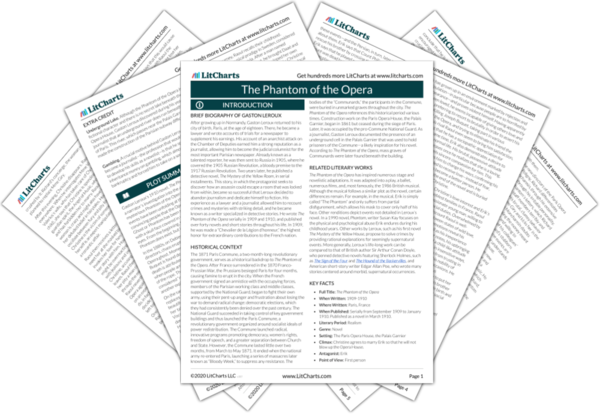In the evening,
Raoul goes to the Opera, leaving his carriage by the entrance, ready for his escape. That night,
Christine Daaé is welcomed coldly on stage, as the public considers that, as a mere singer, she is not fit to marry into the French nobility. Although this initially makes Christine uncomfortable, she soon immerses herself in the beauty of the moment in
Faust in which she ascends to the sky, calling up to the angels. In the middle of her heartrending performance, the lights suddenly go out for a few seconds and, when they return, Christine is no longer there. Although it seems as though Christine has been taken up by the angels, the audience turns toward Raoul, to figure out if he might be involved in this disappearance. The conductor then steps onto the stage and announces that Christine has vanished through some mysterious, unknown means.
